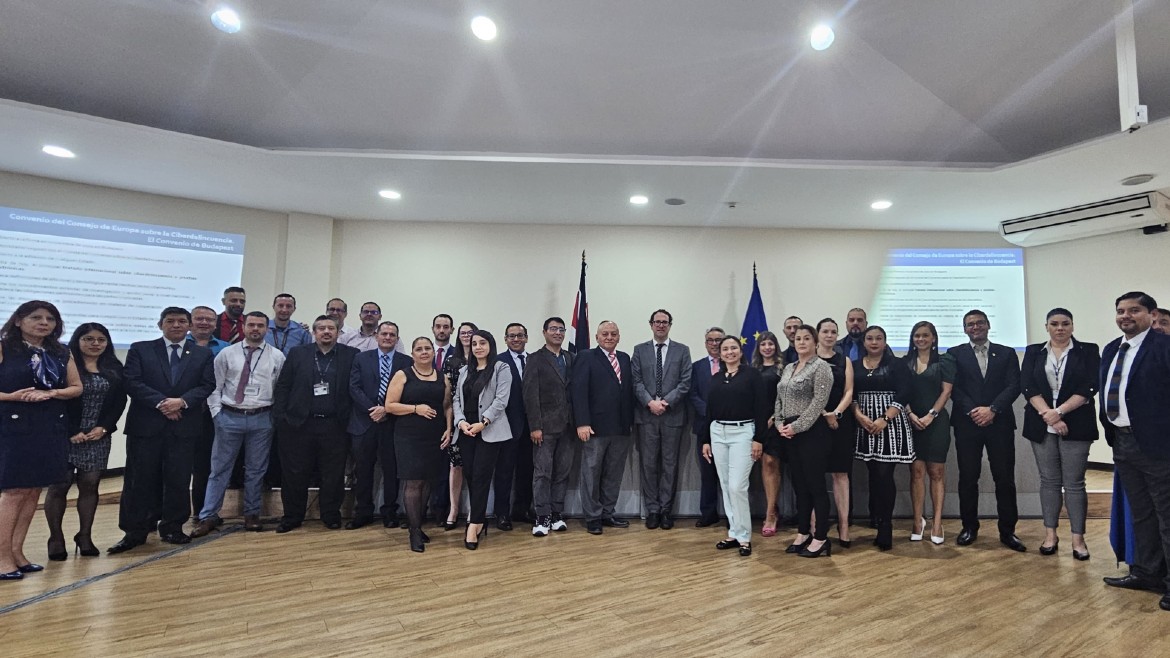On 3-5 June 2024, Costa Rica hosted an in-person training activity addressing international cooperation on cybercrime and electronic evidence. In line with GLACY-e objectives and rationale, the training exercise was conducted as part of a continuous effort to support the development of capacities of criminal justice authorities and engage effectively in international cooperation. To that purpose, 10 judges and prosecutors from Peru participated in the course and actively engaged with around 25 counterparts from Costa Rica.
Based on a practical and interactive approach, the training provided the participants with updated insights on the instruments for international cooperation, especially on the current framework and practices for international cooperation under the Convention on Cybercrime (Budapest Convention) and its Second Additional Protocol. During the training, the following challenges were addressed: the overall volatility of electronic evidence and the increased complexity for obtaining it since such evidence is stored in foreign, multiple, shifting, or unknown jurisdictions.
Another challenge discussed was the administrative length of the investigational process and the responsiveness in its execution. Additionally, the need to ensure policy and regulatory coherence among existing legislation and policy frameworks was emphasized.
Participants noted that inconsistencies and gaps in legislation can complicate international cooperation efforts. The existence of different levels of cooperation involving a varied typology of stakeholders, particularly the private sector, was also a major concern. Ensuring seamless collaboration across these diverse groups remains a critical issue.
Background
The Second Additional Protocol to the Budapest Convention resulted as a solution agreed by its Parties to expand the scope of transborder access, making available improved tools, all subject to a system of human rights and rule of law, including data protection safeguards.
In 2022, Costa Rica signed the Second Additional Protocol to the Budapest Convention. Since then, an increased need to update knowledge and skills of professionals handling cybercrime cases and other investigations requiring electronic evidence was recognised. Mechanisms such as the 24/7 Network and Mutual Legal Assistance (MLA) are key factors in investigations and prosecutions that involve electronic evidence.
Future capacity building initiatives, tailored to needs of the countries, will be supported by the GLACY-e project for both Costa Rica and Peru.
Cybercrime Programme Office (C-PROC)
The Second Additional Protocol to the Budapest Convention
Costa Rica becomes 24th State to sign the Second Additional Protocol to the Convention on Cybercrime



